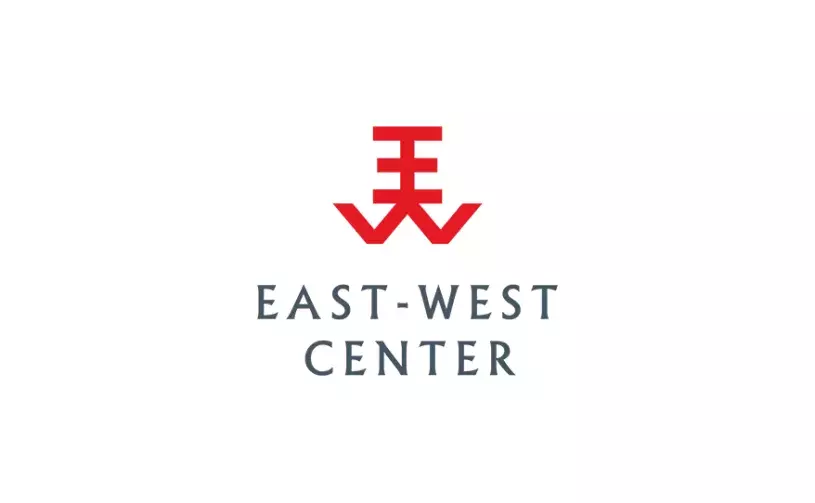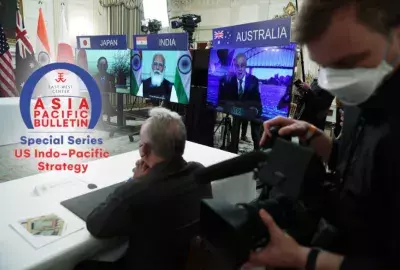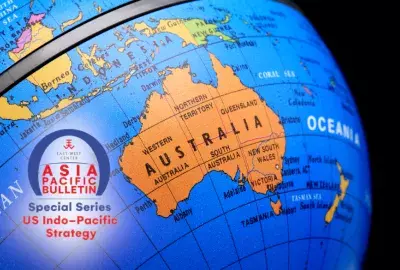Error message

|
Michito Tsuruoka, Associate Professor at Keio University, Japan, explains that “Brexit overshadows the otherwise remarkable progress in Japan-UK ties.” |
The speed and substance of the recent development of Japan-UK political, security, and defense cooperation is remarkable. Tokyo and London claim that they are each other’s closest security partners in Asia and Europe respectively. Following the first ever joint fighter exercise in Japan, between Japan’s Air Self-Defense Force and the Royal Air Force in autumn 2016, more joint military exercises are planned in 2018 and beyond.
Nevertheless, Brexit overshadows the otherwise remarkable progress in Japan-UK ties. Japan’s level of concern about Brexit remains extremely high, particularly regarding the prospect of a “hard Brexit.” The UK has long been Japan’s preferred gateway to the EU, not just in terms of trade and investment, but also in political and security terms. Tokyo has relied on London in its overall approach to the EU, expecting the UK to advocate, within the EU, free trade and engagement in Asia.
Brexit will make it impossible for Japan to keep relying on the UK as the gateway to the EU per se and it will force Tokyo to find an alternative gateway to the EU, most likely France and/or Germany. As a result, the overall value of the UK as Japan’s partner in Europe is set to decline in the coming years. Japan’s pivot away from the UK – particularly for private companies operating in the EU market – is more or less inevitable and necessary to secure its own interests, although this process is not going to be easy given the long-held “UK first” proclivity in Japan’s approach to Europe.
However, the outlook is not entirely bleak. The impending Brexit has also had some positive impact on the development of Japan-UK relations, stemming from the fact that Britain now needs non-EU partners more than ever before. While the most preferred (or obvious) such partner has always been the United States as often argued by Brexiteers, the UK government under Theresa May has not had smooth relations with the Trump administration. Given the situation, the value of Japan for the UK’s foreign policy has increased to become one of the biggest non-EU partners, along with India. The government needs to reassure the public that the prospect of the country’s foreign relations is not necessarily bad under Brexit and that Britain has many valuable friends beyond Europe.
Prime Minister May’s visit to Kyoto and Tokyo in August-September in 2017 demonstrated an unprecedented level of enthusiasm from the UK side in strengthening its ties with Japan; May’s charm offensive was in full swing. The British side was eager to start talking about a post-Brexit bilateral free trade agreement between the two countries and has shown much interest in strengthening security and defense ties as well. Prime Minister May and Japanese Prime Minister Shinzo Abe released a series of documents committing the two countries to enhancing cooperation, including the “Japan-UK Joint Declaration on Security Cooperation.”
Tokyo welcomes London’s increasing engagement in Asia amid the worsening security environment in the region, which will surely further stimulate the development of the bilateral relationship. While Japan does not expect the UK to play a direct military role in Asian contingencies, it certainly expects the UK (and other European countries for that matter) to be attentive to what is taking place in Asia and act accordingly. In this regard, deploying naval vessels to Asia helps a lot in terms of strategic messaging that Britain is engaged in the region.
As defense cooperation including joint exercises and equipment cooperation is from the outset a bilateral business separate from the EU, the adverse impact of Brexit can be minimized in this field. Japan and the UK are committed to conducting more joint exercises and training in the coming years, particularly in Japan and in the wider Asia-Pacific region. Japan is to host the first ever ground exercise and the UK is to deploy a couple of naval vessels to the Asia-Pacific region in 2018. The two countries concluded what is called ACSA (Acquisition and Cross-Servicing and Agreement) and are now set to negotiate a new framework, often called a “reciprocal access agreement,” to facilitate joint operations and exercises.
Furthermore, Japan and the UK recently agreed, as confirmed by the 2+2 ministerial meeting in Greenwich in December 2017, to go ahead with a joint research project on a new air-to-air missile. Defense equipment cooperation has become a new pillar of the Japan-UK security and defense partnership.
In this regard, the fact that Britain is widely considered to be the closest ally of the United States in Europe eases cooperation for Japan, the closest US ally in Asia. On the occasion of the 2+2 meeting in January 2016 in Tokyo, the two British cabinet ministers visited the US naval base in Yokosuka, on the outskirts of Tokyo, and Michael Fallon, then the Defense Secretary, talked about UK-US-Japan “three-way alliance” onboard the US aircraft carrier USS Ronald Reagan.
Last but not least, Tokyo would like to keep London involved in Japan-Europe – or more specifically Japan-EU – relations after Brexit. A framework that brings together Japan, the EU, and the UK is necessary. One option would be to use the G7 framework where major European countries (France, Germany, Italy and the UK) as well as the EU institutions (the Commission and the Council) are represented. There might be little time to hold a Japan-EU-UK meeting, during the G7 Summit itself. However, there should be more possibilities to do so at the ministerial level and below.
After all, despite all the rhetoric of “global Britain” and London’s seemingly renewed willingness to engage in Asia, Tokyo needs to be realistic about the future of the UK’s role in Asia. For London, sorting out relations with the EU, maintaining its influence in Europe and in its neighborhood as well as managing relations with the US will be of higher priority and it will need to concentrate more resources in those essential areas before thinking about Asia in the coming years. This also tells us that, in terms of strengthening the Japan-UK strategic partnership, what Tokyo will have to consider more is what role it is prepared and willing to play in Europe and its neighborhood including regarding Russia and Ukraine as well as the broader Middle East and Africa. Just expecting the UK to commit to Asia will not work in the long term.
|
Michito Tsuruoka, Associate Professor at Keio University, Japan, explains that “Brexit overshadows the otherwise remarkable progress in Japan-UK ties.” |
The speed and substance of the recent development of Japan-UK political, security, and defense cooperation is remarkable. Tokyo and London claim that they are each other’s closest security partners in Asia and Europe respectively. Following the first ever joint fighter exercise in Japan, between Japan’s Air Self-Defense Force and the Royal Air Force in autumn 2016, more joint military exercises are planned in 2018 and beyond.
Nevertheless, Brexit overshadows the otherwise remarkable progress in Japan-UK ties. Japan’s level of concern about Brexit remains extremely high, particularly regarding the prospect of a “hard Brexit.” The UK has long been Japan’s preferred gateway to the EU, not just in terms of trade and investment, but also in political and security terms. Tokyo has relied on London in its overall approach to the EU, expecting the UK to advocate, within the EU, free trade and engagement in Asia.
Brexit will make it impossible for Japan to keep relying on the UK as the gateway to the EU per se and it will force Tokyo to find an alternative gateway to the EU, most likely France and/or Germany. As a result, the overall value of the UK as Japan’s partner in Europe is set to decline in the coming years. Japan’s pivot away from the UK – particularly for private companies operating in the EU market – is more or less inevitable and necessary to secure its own interests, although this process is not going to be easy given the long-held “UK first” proclivity in Japan’s approach to Europe.
However, the outlook is not entirely bleak. The impending Brexit has also had some positive impact on the development of Japan-UK relations, stemming from the fact that Britain now needs non-EU partners more than ever before. While the most preferred (or obvious) such partner has always been the United States as often argued by Brexiteers, the UK government under Theresa May has not had smooth relations with the Trump administration. Given the situation, the value of Japan for the UK’s foreign policy has increased to become one of the biggest non-EU partners, along with India. The government needs to reassure the public that the prospect of the country’s foreign relations is not necessarily bad under Brexit and that Britain has many valuable friends beyond Europe.
Prime Minister May’s visit to Kyoto and Tokyo in August-September in 2017 demonstrated an unprecedented level of enthusiasm from the UK side in strengthening its ties with Japan; May’s charm offensive was in full swing. The British side was eager to start talking about a post-Brexit bilateral free trade agreement between the two countries and has shown much interest in strengthening security and defense ties as well. Prime Minister May and Japanese Prime Minister Shinzo Abe released a series of documents committing the two countries to enhancing cooperation, including the “Japan-UK Joint Declaration on Security Cooperation.”
Tokyo welcomes London’s increasing engagement in Asia amid the worsening security environment in the region, which will surely further stimulate the development of the bilateral relationship. While Japan does not expect the UK to play a direct military role in Asian contingencies, it certainly expects the UK (and other European countries for that matter) to be attentive to what is taking place in Asia and act accordingly. In this regard, deploying naval vessels to Asia helps a lot in terms of strategic messaging that Britain is engaged in the region.
As defense cooperation including joint exercises and equipment cooperation is from the outset a bilateral business separate from the EU, the adverse impact of Brexit can be minimized in this field. Japan and the UK are committed to conducting more joint exercises and training in the coming years, particularly in Japan and in the wider Asia-Pacific region. Japan is to host the first ever ground exercise and the UK is to deploy a couple of naval vessels to the Asia-Pacific region in 2018. The two countries concluded what is called ACSA (Acquisition and Cross-Servicing and Agreement) and are now set to negotiate a new framework, often called a “reciprocal access agreement,” to facilitate joint operations and exercises.
Furthermore, Japan and the UK recently agreed, as confirmed by the 2+2 ministerial meeting in Greenwich in December 2017, to go ahead with a joint research project on a new air-to-air missile. Defense equipment cooperation has become a new pillar of the Japan-UK security and defense partnership.
In this regard, the fact that Britain is widely considered to be the closest ally of the United States in Europe eases cooperation for Japan, the closest US ally in Asia. On the occasion of the 2+2 meeting in January 2016 in Tokyo, the two British cabinet ministers visited the US naval base in Yokosuka, on the outskirts of Tokyo, and Michael Fallon, then the Defense Secretary, talked about UK-US-Japan “three-way alliance” onboard the US aircraft carrier USS Ronald Reagan.
Last but not least, Tokyo would like to keep London involved in Japan-Europe – or more specifically Japan-EU – relations after Brexit. A framework that brings together Japan, the EU, and the UK is necessary. One option would be to use the G7 framework where major European countries (France, Germany, Italy and the UK) as well as the EU institutions (the Commission and the Council) are represented. There might be little time to hold a Japan-EU-UK meeting, during the G7 Summit itself. However, there should be more possibilities to do so at the ministerial level and below.
After all, despite all the rhetoric of “global Britain” and London’s seemingly renewed willingness to engage in Asia, Tokyo needs to be realistic about the future of the UK’s role in Asia. For London, sorting out relations with the EU, maintaining its influence in Europe and in its neighborhood as well as managing relations with the US will be of higher priority and it will need to concentrate more resources in those essential areas before thinking about Asia in the coming years. This also tells us that, in terms of strengthening the Japan-UK strategic partnership, what Tokyo will have to consider more is what role it is prepared and willing to play in Europe and its neighborhood including regarding Russia and Ukraine as well as the broader Middle East and Africa. Just expecting the UK to commit to Asia will not work in the long term.







